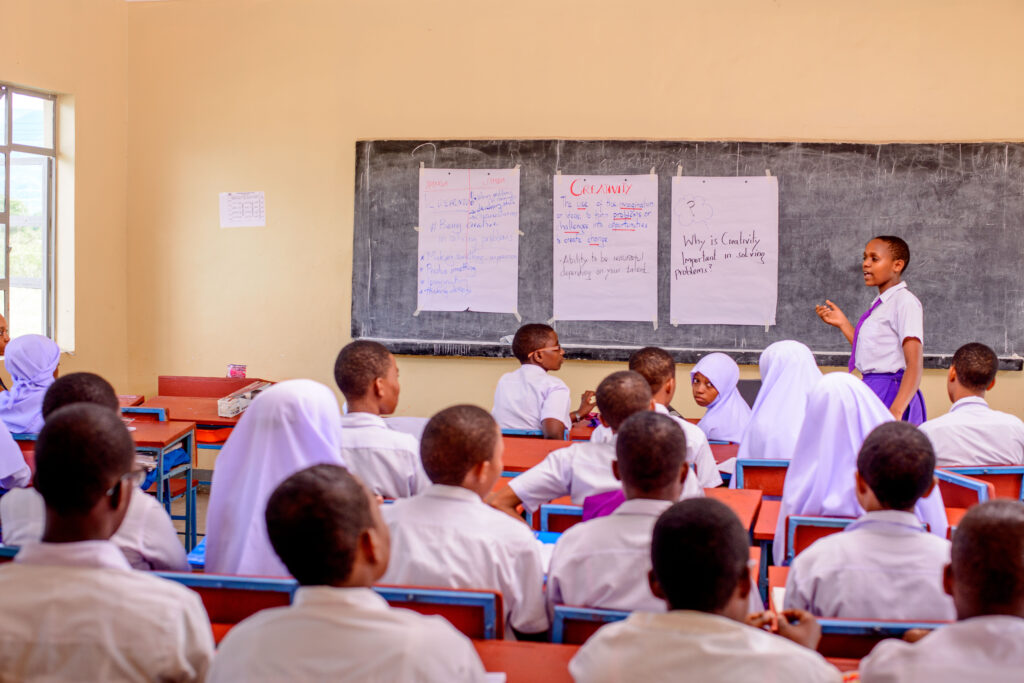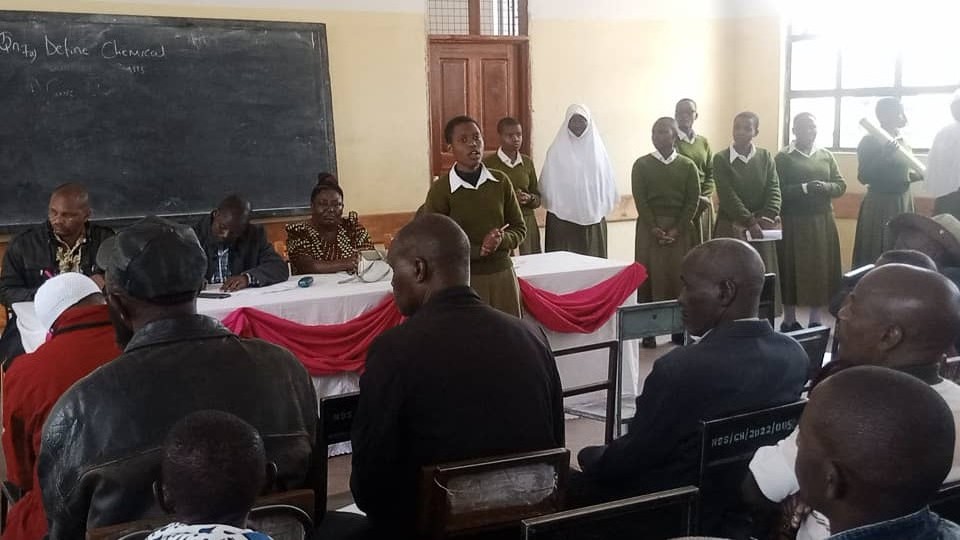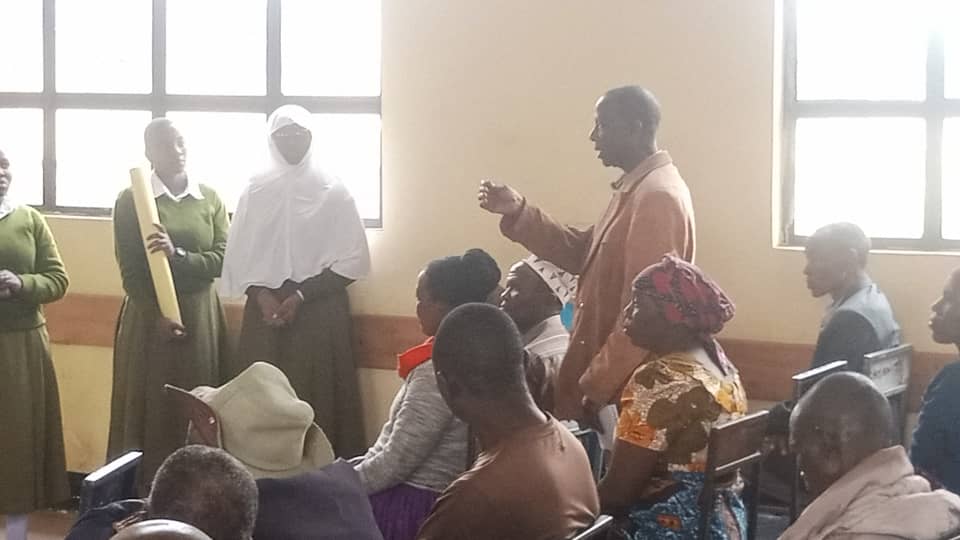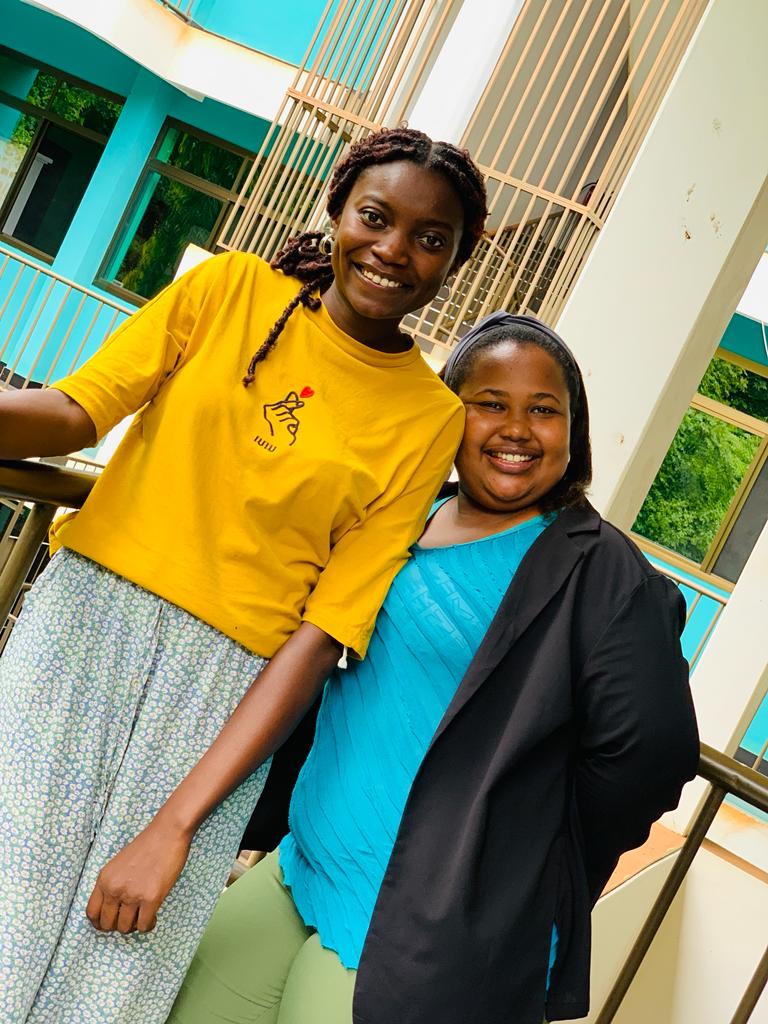Communications | Advocacy Campaign | Kisa Program | 20th December 2023
Kisa Program is a two year Leadership course that prepares girls in Tanzania in their last two years of Secondary School to attend University and create positive social change in their communities. This is done through weekly extracurricular sessions led by a Mentor, covering different topics on Leadership and Life Skills. In addition to these weekly sessions, Kisa Scholars are provided with other sessions that support them to grow career wise and make informed decisions on their health enabling them to pursue their goals. By the end of this two-year training, Kisa Scholars are expected to analyze challenges in their lives and community and apply Leadership skills to address personal and community issues, utilizing the program’s knowledge for positive change in their lives and communities.
One of the lessons taught to our Kisa Scholars is Advocacy, empowering Kisa Scholars to identify and address community challenges through Advocacy Campaigns. Introduced in the first year of the Kisa program, this lesson brings a profound understanding among Kisa Scholars that they have the capability to contribute to solving community issues. Irene, a Kisa Program Scholar, shares how this lesson has paved the way for her engagement in community activities as a proactive problem solver. She said, “At the very beginning, during the Kisa recruitment interview, I was asked if I had ever engaged in any community activity. I didn’t have an answer because I never knew how to engage in community activities and why I should do that, but Kisa has paved the way for me to contribute and make a mark in my community. Initially, I didn’t believe I could have any impact, but through Kisa lessons, I have developed a positive mindset, realizing that I can bring about changes in my community.” Irene gained skills that made her realize she is the change she wants to see in her community. From the lessons she learned and continues to learn in class, Irene has been able to put into practice the solving of challenges in her community.

During Advocacy Campaigns, an activity specifically designed for Kisa year one Scholars as they complete the Kisa year one lessons before embarking on their year 2 Kisa Program journey, Irene and her fellow Kisa Scholars addressed a challenge in their school came up with an engaging solution, and advocated for it in their school. They wanted to understand why Ordinary Level (O-Level) boys were not performing well in their studies at school. (In Tanzania, after completing seven years of primary education, a student is required to attend lower secondary school for four years, known as Ordinary Level (O-Level). Following O-Level, the student progresses to higher secondary school or advanced secondary school for an additional two years, referred to as Advanced Level (A-Level), there after they would proceed to university or college.)Their aim was to explore ways to support and improve the academic performance of these students. With the communication skills they acquired from the Kisa class sessions, they conducted interviews with the ordinary level boys, teachers, and the head of the school to find out the reasons for the poor academic performance.
From the interviews conducted, they discovered numerous challenges contributing to the boys’ lower academic performance. The major reason identified was that most of the boys’ families and the community around them did not recognize the importance of Education. Consequently, during school hours, the boys were assigned tasks such as tending to cows and goats and working on farms during class hours, limiting their attendance at school.
The knowledge that Kisa Scholars had in one of their Kisa sessions on Networking provided them with a valuable idea – involving a significant asset in the school, the Headmaster, to address the issue. After a huge impactful discussion on the problem and proposed solutions the headmaster and the Kisa Scholars agreed upon conducting a Parents Meeting with the Ordinary Level boys parents at school. The Headmaster communicated with the school board to secure approval for hosting the Parents Meeting, which was granted. After planning for the meeting on when and how it would take place, the Kisa Scholars were ready for the meeting as planned,although faced a challenge of the meeting being postponed more than twice due to various reasons out of hand. But with the resilience they obtained from the Kisa Program, they believed nothing could hinder them and persisted in addressing the problem as planned. After more than two attempts and postponements, the meeting was successfully conducted with 60 parents out of the expected 100 in attendance.

At the start of the meeting, parents were surprised to see the Kisa Scholars taking the lead, they eagerly awaited to hear from these impressive young girls. As the meeting progressed, parents understood the purpose and were proud of the Kisa Scholars for informing them about the challenges their young boys face that leads to lower academic performance and attendance at school. The scholars emphasized to the parents on the importance of educating their children and in the end, most parents expressed their support towards their children’s education, showcasing the impact of the meeting. Parents were not only impressed by the meeting, they were also so proud of the Kisa Scholars for confidently identifying and solving the problem. One parent said, “Your parents must be so proud of you. You, as young girls, have undertaken significant work by addressing the academic performance of your young brothers. We, as parents, will ensure the boys study hard to improve their academic performance and are supportive of that.”

Irene and her fellow Kisa Scholars have transformed into confident young girls, emerging as socially responsible leaders prepared to tackle community challenges, as demonstrated in their school. The Kisa Program equips young girls with a diverse set of skills, empowering them to be the change we want to see in the world. Irene now possesses the confidence to address any community challenge, applying the leadership and life skills she has gained and continues to acquire from the Kisa Program.

Nyanjugu Jackson and Idda Joseph,
GLAMI Program Mentors.